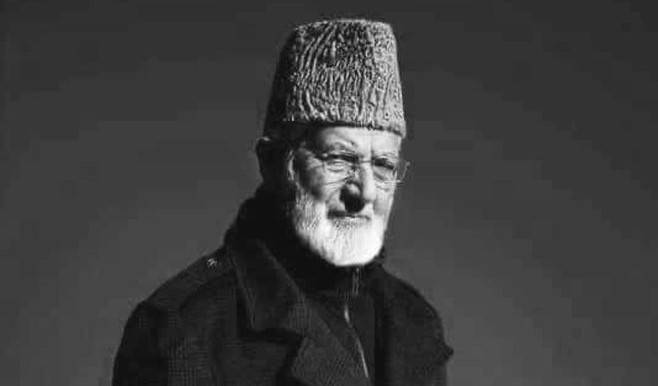Largest democracy’s inhuman restrictions on Geelani’s burial

Stay tuned with 24 News HD Android App

The death of veteran APHC leader Syed Ali Geelani means a serious setback to the Kashmir cause at a juncture when it faces unthinkable challenges at the hands of the brutal government of Narendra Modi.
Now it will be an uphill task for the Kashmiris to find a leader who could reinvigorate the cause and garner world support for it.
It may be safely predicted that after Ali Geelani’s passing the Indian government would take harsher measures to demoralize the Kashmiris and crush their freedom movement. Especially so, because the world has not taken due notice of earlier steps taken by the Modi government for the same purpose.
An uncompromising campaigner against Indian rule in Kashmir, Syed Geelani had been under house arrest for the past 11 years. He had been ill for several months.
A thorn in India's side since the early 1960s when he began campaigning for the territory's merger with Pakistan, he was jailed for nearly 10 years after 1962 and often restricted to his home after that.
Since his youthful days, Geelani had been a member of Jamaat-i-Islami, which was banned by the Hindu nationalist government in 2019.
He was a steadfast leader, a man committed to making Kashmir part of Pakistan at any cost. He always believed that the day was not far off when Kashmir would merge with Pakistan. The 92-year-old was a source of inspiration both for his contemporaries as well as the younger generation.
It will not be wrong to say that the great Kashmiri leader was more Pakistani than any Pakistani.
After his death challenges have mounted for the Kashmiri leaders to sustain the movement for riddance from Indian subjugation and getting the Kashmiris their rights under the UN resolutions.
This will be possible only if the Kashmiris maintained unity in their ranks and refused to give up their struggle despite Indian barbarism or temptations.
The way the so-called largest democracy of the world imposed a security clampdown in occupied Kashmir to keep the people away from the funeral of the veteran leader should awaken the world conscience. Even the family of the late leader was not allowed – something unimaginable in civilized societies.
Troops put up barbed wire rolls and barricades on roads leading to Geelani's house in the main city of Srinagar after the family announced the death.
Hundreds of security forces were immediately deployed. Announcements were made from loudspeakers of the main mosque near Geelani's residence asking people to march towards the house. But scores of armoured vehicles and trucks patrolled main roads in the area. Police appealed for people not to go out on the street.
Last year, Geelani had resigned from his post as APHC chief, of which he had been a member since its formation in 1993 as a political arm of the anti-India movement. He was elected its chairman for life in 2003. Hurriyat Conference (Geelani) has more than 24 constituent parties.
The situation created by the Indian government at the time of the burial of Syed Geelani should be a matter of grave concern for all Islamic countries. They should make India realise that it was totally inhuman and unacceptable for them.
The Islamic brotherhood demands that they should send a strongly worded message to India on the subject to make the Kashmiris feel that OIC countries were with them.
May the departed soul rest in peace.
